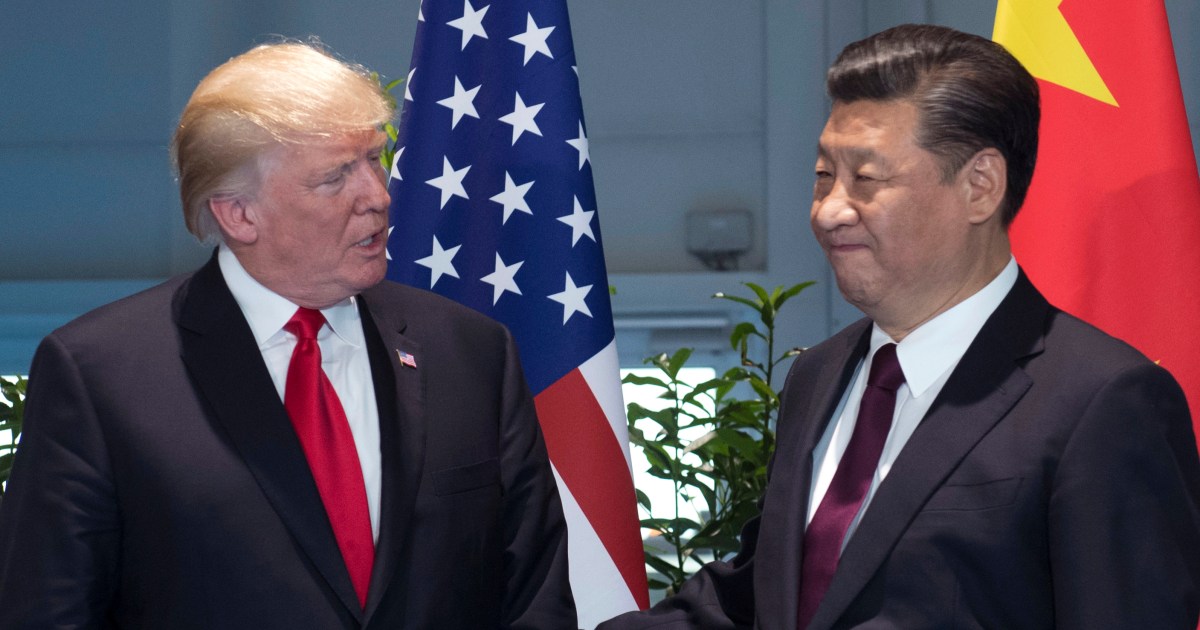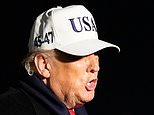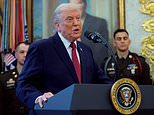
Experts say Trump’s invitation is largely unprecedented, but Xi is unlikely to accept, given their past relations.
United States President-elect Donald Trump has invited his Chinese counterpart Xi Jinping to attend his inauguration ceremony in January, despite his history of hawkish rhetoric and tariff threats.
On Thursday, Trump’s incoming press secretary, Karoline Leavitt, confirmed reports of the invitation in an appearance on the conservative TV channel Fox News. She framed the invitation as an effort to strengthen ties between the two countries, long seen as rivals.
“This is an example of President Trump creating an open dialogue with leaders of countries that are not just our allies but our adversaries and our competitors, too,” Leavitt told the programme Fox & Friends.
Experts say that it would be unprecedented for a Chinese leader to attend a US presidential inauguration, given the frosty relations that have persisted between the two countries for decades.
“This is diplomatic theater, nothing more. Other heads of state, let alone Xi Jinping, haven’t attended US presidential inaugurations,” Scott Kennedy, a China specialist at Washington’s Center for Strategic and International Studies, told the news agency Reuters.
Experts say Xi is unlikely to accept the invitation. When asked at a briefing about Trump’s invitation, Chinese Foreign Ministry spokesperson Mao Ning responded: “I have nothing to share at present.”
But the symbolism behind his appearance at Trump’s second inauguration would likely be fraught.
Danny Russel, vice president for international security and diplomacy at the Asia Society Policy Institute, told The Associated Press that Xi’s attendance – if he accepts – could be construed as the Chinese president “celebrating the triumph of a foreign leader”.
“Can you imagine Xi Jinping sitting outdoors in Washington, DC, in January at the feet of the podium, surrounded by hawkish members of Congress, gazing up at Donald Trump as he delivers his inaugural address?” asked Russel.
Xi and Trump have also butted heads in the past. During Trump’s first term, from 2017 to 2021, he initiated a trade war with China that saw the two countries impose tariffs on each other’s imports.
In 2019, the United Nations Trade and Development organisation issued a report warning that the trade war was “economically hurting both countries”. Experts have also warned that the cost of tariffs is often offset onto consumers.
Trump also exchanged a war of words with Xi’s government during the COVID-19 pandemic, which he called the “China virus”. He demanded China be held accountable for its spread. China, for its part, condemned Trump’s accusations as “baseless” and called his rhetoric stigmatising.
A second Trump term may spark further tensions with China. Already, he has pledged to impose an additional 10 percent tariff on Chinese goods if more is not done to curb the trade of the synthetic drug fentanyl.
And his incoming administration is stacked with several notable foreign policy hawks, including Secretary of State nominee Marco Rubio, who has accused China of deploying “theft” and “predatory tactics” to strengthen its economy. China sanctioned Rubio in 2020.
The current administration of US President Joe Biden has also left some tariffs from Trump’s first term largely in place and taken aggressive steps meant to hobble China’s tech sector.
But this week, there was evidence the US could seek to increase cooperation with China moving forward.
The Biden administration announced a delegation of senior Treasury Department officials would travel to Nanjing, China, while other officials would coordinate with their Chinese counterparts at a meeting for the Group of 20 (G20) forum in South Africa.
Trump too has signalled a willingness to warm relations. Speaking from the floor of the New York Stock Exchange on Thursday, Trump also said his incoming administration would engage in “a lot of talks with China”.
“We have a good relationship with China. I have a surprising relationship. Now, when the COVID came in, I sort of cut it off. That was a step too far,” he said.
Some are hopeful that the two global powers will find room for collaboration where possible.
“We should choose dialogue over confrontation and win-win cooperation over zero-sum games,” Xi said in the letter read aloud at a US-China Business Council gala in Washington, DC, on Wednesday.
Source
:
Al Jazeera and news agencies






